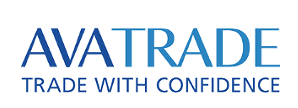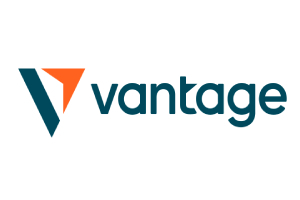Financial independence goes beyond steady income and sage saving; the people who envision long-term success must search for ways in which money is made to work for them. Trading, whenever it is applied correctly, gives a very well-organized methodology for building one’s wealth and diversification of assets, making a person financially stable.

Most people are very hesitant to enter this field, believing it is either too complex or too risky. However, understanding the fundamental principles of investing minimizes risks and maximizes opportunities. Those who develop trading skills gain an edge in financial planning and ensure greater control over their future.
Can Anyone Learn to Trade?
A common misconception is that trading is only for finance pros. Many assume that one must possess extensive market knowledge before stepping into this field. This is not true. While experience and expertise enhance profitability, anyone with dedication and the right mindset can learn how to trade effectively.
Success in investing does not depend on academic qualifications. Some of the most accomplished traders started with little knowledge but developed skills through disciplined practice. Learning how financial markets function is essential, but even complex concepts become manageable with structured education. The key lies in consistent effort, informed decision-making, and a focus on continuous learning.

Common Misconceptions to Ignore
People hesitate to enter the field due to various myths. Below are some widely believed misconceptions:
- Only finance experts can succeed
Many assume only those with financial degrees or Wall Street experience can trade. In reality, anyone can develop the necessary skills.
- Trading is gambling
Unlike gambling, investing relies on analysis, patterns, and strategy rather than chance. Risk management plays a critical role.
- You need a large capital to start
Many platforms allow trading with small amounts. They are dedicated to enabling traders to grow their portfolios gradually.
- Profit is guaranteed
No investing strategy ensures consistent profit. Learning to manage losses is just as important as maximizing gains.
- It requires full-time dedication
While some trade full-time, others engage in part-time or automated trading. It all depends on balancing it with other commitments.
Understand these myths, and the way becomes clear for every aspiring trader to approach markets realistically. This actually helps in having a concentrated plan of strategy elaboration rather than being at the mercy of the so-called market ghosts.
Trading as a Path to Financial Growth
Financial markets offer numerous opportunities to build wealth. Unlike traditional savings accounts or fixed deposits, investing allows individuals to take advantage of market fluctuations. Buying low and selling high remains a fundamental principle, but deeper knowledge improves decision-making. By mastering different strategies, traders optimize their earnings and minimize losses.
Different Types of Trading
There are multiple approaches to investing, each catering to different risk appetites and financial goals. You can familiarize yourself with the most common below.
| Trading Type | Time Frame | Risk Level | Best For |
| Day Trading | Intraday (minutes to hours) | High | Active traders who can monitor markets closely |
| Swing Trading | Several days to weeks | Medium | Those who prefer mid-term strategies |
| Position Trading | Months to years | Low to Medium | Investors with long-term financial goals |
| Scalping | Seconds to minutes | High | Traders who focus on frequent, small profits |
Each style requires a distinct strategy and risk management approach. Choosing the right one depends on a trader’s financial objectives and time availability.
Market Awareness Enhances Financial Literacy
Understanding how financial markets operate improves overall financial literacy. Many individuals struggle with economic decisions because they lack insight into market trends. Trading skills help individuals interpret economic indicators, company reports, and geopolitical events. This knowledge proves valuable beyond investing, assisting in everyday financial decisions.
People who follow financial markets develop a sharper understanding of economic cycles. They recognize when markets are overvalued or undervalued, which allows them to make informed investment choices. This awareness extends to personal finances and ensures better savings strategies and smarter asset allocations.
How Trading Improves Decision-Making
By learning to analyze market movements, traders develop essential decision-making skills. They include but are not limited to the following:
- Risk assessment — Traders weigh the potential risks before investing their capital.
- Emotional discipline — Effective investing requires patience, logic, and emotional control.
- Data-driven thinking — Traders base their choices on factual analysis rather than speculation.
- Adaptability — Market conditions change and require traders to adjust their strategies accordingly.
These skills are transferable to other areas of life, such as business, personal finance, and career development. A trader’s ability to analyze risks, adapt to changing conditions, and make data-driven decisions proves valuable in any professional or financial endeavor.
Choosing the Right Trading Tools
Trading success depends on the ability to analyze data and execute trades efficiently. Reliable investing tools simplify this process, providing valuable insights and automating complex calculations. Traders benefit from platforms that offer technical analysis, market research, and risk assessment features. Selecting these inarguably right trading tools requires careful consideration.
With 15 years of collective market expertise, WitzelTrading’s expert team delivers in-depth analysis, professional investing strategies, and personalized guidance to their community. Their comprehensive reviews of trading tools, in particular, help traders make informed decisions about the software that best matches their goals and experience level.
The right combination of tools and expertise can dramatically improve investing outcomes. Without proper resources, even skilled traders may struggle to execute their strategies effectively. Professional guidance proves especially valuable when evaluating new trading platforms and analytical tools that emerge in the market.
Features to Look for in Trading Tools
A good investing platform should offer robust functionality. In general, top-tier solutions give access to the following features.
| Feature | Description |
| Real-time market data | Accurate pricing information is crucial for timely decision-making |
| Technical analysis tools | Indicators and charting features help traders predict price movements |
| Risk management functions | Stop-loss and take-profit features allow traders to control their losses |
| User-friendly interface | A platform should be easy to navigate for smooth execution of trades |
| Security and reliability | Strong encryption and regulatory compliance ensure data protection |
Technology plays a crucial role in modern investing. Automated trading systems, advanced charting software, and algorithmic strategies improve decision-making speed. Access to real-time market data allows traders to respond to price movements without delays. By using professional-grade tools, traders maximize their efficiency and minimize errors.
Is Trading Risky or Rewarding?
Many hesitate to trade because they fear losing money. Risk exists in every financial decision, but informed traders manage it effectively. Investing without a plan leads to failure, while strategic execution increases the chances of success.

Essential Risk Management Strategies
- Diversification – Avoid putting all capital into a single asset. Spreading investments reduces risk exposure.
- Position sizing – Allocate capital wisely to prevent overexposure to a single trade.
- Using stop-loss orders – Setting predefined loss limits prevents excessive losses.
- Avoiding emotional trading – Fear and greed lead to irrational decisions. A clear strategy ensures better discipline.
- Continuous learning – Markets evolve, and staying informed ensures long-term profitability.
Risk management is an essential component of trading. Experienced traders set stop-loss orders, diversify their investments, and avoid overleveraging. These precautions protect capital and ensure sustainability in the long run. Instead of fearing risks, traders learn to control them through disciplined strategies.
The Long-Term Benefits of Trading Skills
Learning how to trade provides lifelong financial advantages. While markets evolve, fundamental principles remain consistent. Those who acquire trading skills secure their ability to generate income under different economic conditions. Whether through stocks, forex, or commodities, traders adapt their strategies to maintain profitability.
Flexibility is another benefit. Unlike traditional employment, investing allows individuals to control their schedules. Many full-time traders work from anywhere in the world, enjoying financial freedom and independence. Even those who trade part-time benefit from supplemental income that strengthens their financial stability.
Building trading expertise requires time and dedication, but the rewards outweigh the effort. Financial success is not about taking shortcuts but about developing skills that create lasting opportunities. Investing equips individuals with the knowledge, tools, and discipline needed to thrive in a dynamic economic environment.
- Broker
- Min Deposit
- Score
- Visit Broker
- Award-winning Cryptocurrency trading platform
- $100 minimum deposit,
- FCA & Cysec regulated
- 20% welcome bonus of upto $10,000
- Minimum deposit $100
- Verify your account before the bonus is credited
- Fund Moneta Markets account with a minimum of $250
- Opt in using the form to claim your 50% deposit bonus
Learn to Trade
Never Miss A Trade Again

Signal Notification
Real-time signal notifications whenever a signal is opened, closes or Updated

Get Alerts
Immediate alerts to your email and mobile phone.

Entry Price Levels
Entry price level for every signal Just choose one of our Top Brokers in the list above to get all this free.



